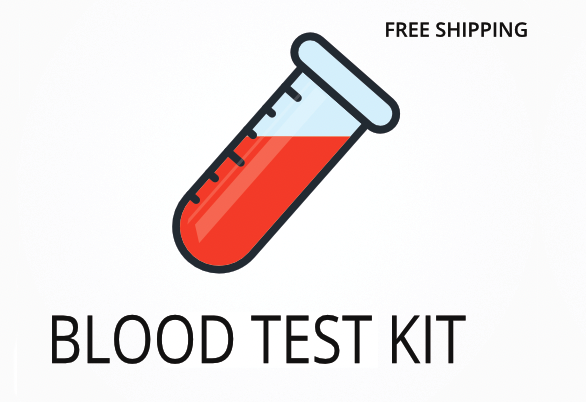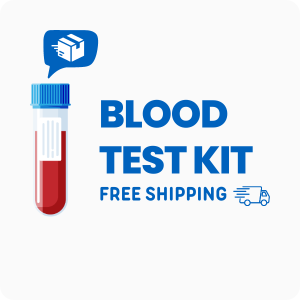Ordering the Neurological Autoimmune Reactivity Screen Expanded | Cyrex Array #7x
The Neurological Autoimmune Reactivity Screen Expanded | Cyrex Array #7x helps detect immune system activity against nerve and brain proteins, which can be linked to neurological symptoms and autoimmune conditions. This test is often used when symptoms like memory loss, muscle weakness, or unexplained tingling are present, especially in people with gluten or dairy sensitivity. Interestingly, this test can also reveal early immune reactions before neurological symptoms become noticeable, offering a window for earlier intervention.
Ordering this test can help you:
- Identify immune responses to specific nerve and brain proteins
- Detect early signs of neuro-autoimmune activity before symptoms worsen
- Support diagnosis of conditions like multiple sclerosis, lupus, or celiac disease with neurological involvement
- Guide targeted treatment plans based on your immune profile
- Monitor changes in immune reactivity over time for ongoing management
Who Should Consider Neuroimmune Reactivity Screening
People who have unexplained neurological symptoms, such as brain fog, balance problems, or chronic headaches, may benefit from this test. For example, someone who has been struggling with persistent dizziness and memory lapses, despite normal brain scans, might find this test helpful in uncovering hidden immune triggers.
Ordering may also be helpful in these situations:
- Ongoing fatigue and muscle weakness that do not improve with rest
- Chronic pain or numbness with no clear cause
- History of autoimmune conditions with new neurological symptoms
- Unexplained mood swings or anxiety that have not responded to standard treatments
- People with celiac disease who develop tingling or balance issues after gluten exposure
Testing for immune reactivity to nerve and brain proteins can help pinpoint the source of neurological symptoms, support a more accurate diagnosis, and guide treatment decisions. Delaying this test may allow immune activity to progress, making symptoms harder to manage and potentially leading to more severe nerve damage.
Preparing for Neuroimmune Autoantibody Testing
Fasting is not required for this test, so you can eat and drink as usual before your blood draw. Always follow any instructions your doctor or healthcare provider gives you to make sure your sample is collected correctly and your results are as useful as possible.
Labs Included When Ordering Your Neurological Autoimmune Reactivity Screen Expanded | Cyrex Array #7x
| Test Name | Reference Range | Significance | Low and High Levels of Each Marker |
|---|---|---|---|
| Myelin Basic Protein IgG + IgA Combined | 0-19 | Myelin basic protein is a key part of the protective covering around nerves. This marker shows if your immune system is reacting to myelin, which can be linked to nerve damage. | High levels mean your immune system may be attacking nerve coverings, which can be seen in conditions like multiple sclerosis.
Low levels mean there is little or no immune response to myelin basic protein. |
| Myelin Basic Protein IgM | 0-19 | This marker checks for early immune responses to myelin. IgM is often the first antibody made when the immune system reacts to a new target. | High levels mean a recent or active immune attack on nerve coverings may be happening.
Low levels mean there is no current or recent immune response to myelin basic protein. |
| Asialoganglioside IgG + IgA Combined | 0-19 | Asialogangliosides are found in nerve cell membranes. This test shows if your immune system is reacting to these nerve cell parts, which can be linked to nerve pain or weakness. | High levels mean your immune system may be targeting nerve cell membranes, which can cause nerve symptoms.
Low levels mean there is little or no immune response to asialogangliosides. |
| Asialoganglioside IgM | 0-19 | This marker checks for early immune activity against asialogangliosides. IgM antibodies can show a new or active immune response. | High levels mean a recent immune reaction to nerve cell membranes may be present.
Low levels mean there is no current or recent immune response to asialogangliosides. |
| Alpha + Beta Tubulin IgG + IgA Combined | 0-19 | Alpha and beta tubulin are proteins that help keep nerve cells stable. This test shows if your immune system is reacting to these proteins, which can affect nerve function. | High levels mean your immune system may be attacking nerve cell structure, which can lead to nerve problems.
Low levels mean there is little or no immune response to tubulin proteins. |
| Alpha + Beta Tubulin IgM | 0-19 | This marker checks for early immune responses to tubulin proteins. IgM antibodies can show a new or active immune reaction. | High levels mean a recent immune attack on nerve cell structure may be happening.
Low levels mean there is no current or recent immune response to tubulin proteins. |
| Cerebellar IgG + IgA Combined | 0-19 | Cerebellar proteins are found in the part of the brain that controls balance and movement. This test shows if your immune system is reacting to these proteins, which can affect coordination. | High levels mean your immune system may be targeting the cerebellum, which can cause balance or movement problems.
Low levels mean there is little or no immune response to cerebellar proteins. |
| Cerebellar IgM | 0-19 | This marker checks for early immune activity against cerebellar proteins. IgM antibodies can show a new or active immune response in the brain. | High levels mean a recent immune reaction to the cerebellum may be present.
Low levels mean there is no current or recent immune response to cerebellar proteins. |
| Synapsin IgG + IgA Combined | 0-19 | Synapsin is a protein involved in nerve signal transmission. This test shows if your immune system is reacting to synapsin, which can affect how nerves communicate. | High levels mean your immune system may be attacking nerve signaling proteins, which can cause problems with memory or mood.
Low levels mean there is little or no immune response to synapsin. |
| Synapsin IgM | 0-19 | This marker checks for early immune responses to synapsin. IgM antibodies can show a new or active immune reaction affecting nerve communication. | High levels mean a recent immune attack on nerve signaling proteins may be happening.
Low levels mean there is no current or recent immune response to synapsin. |
Reference ranges may change slightly as labs update their methods and standards.
Neurological Autoimmune Reactivity Screen Expanded | Cyrex Array #7x FAQ
Is there Neurological Autoimmune Reactivity Screen Expanded | Cyrex Array #7x testing near me?
This is a test kit that can be collected at a local draw site—check the draw location link at the top of the page for options near you. For people experiencing symptoms like brain fog or muscle weakness, having a nearby collection site makes it easier to get tested quickly and start finding answers.
How do I interpret the test results?
While your treating physician should review your results, we also offer a one-on-one test results review with our clinical team to help you understand what your results mean and what steps to take next.
What is the cost of the test?
The price listed for this test includes standard shipping to you and return shipping to the lab, but draw fees may apply at the collection site. Ordering this test can help you identify immune-related nerve issues sooner, which may help you get the right treatment faster.
How often should I retest?
Retesting is usually recommended every 6-12 months, especially if you have ongoing symptoms or are monitoring treatment progress. Regular testing helps track changes in immune activity and supports timely adjustments to your care plan.
How accurate is the test?
This test uses ELISA (enzyme-linked immunosorbent assay) technology to measure specific antibodies, with a specificity of 98% and sensitivity of 97%. TrueHealthLabs.com partners with CLIA-certified and CAP-certified laboratories to uphold rigorous testing standards for dependable results.
Important Notes
- It is recommended to be clear of immunosuppressants and/or corticosteroids for at least 60 days prior to taking this test. Please consult with your prescribing healthcare provider.
- NOT AVAILABLE IN NEW YORK. SPECIMEN DRAWS CAN BE COMPLETED IN NEIGHBORING STATES.
- We are now accepting international orders. The sample must be received within 7 days. Additional return shipping fees may apply.
- READ: IMPORTANT Cyrex FAQs
- Due to circumstances beyond our control, pediatric blood draws are not included under Cyrex’s contracted phlebotomy. All patients 15 years of age and younger are included in the pediatric group. Pediatric blood draws must be scheduled by the parents at a laboratory of their choosing and paid for by the parent at the time of service.
Medical Review Board
Reviewed by Jeff Donohue M.D. from Body Logic and Brady Hurst DC, CCCN. Written by True Health Lab’s team of editorial health contributors.
Disclaimer: This information is for educational purposes only and not intended as medical advice. Consult your healthcare provider for personalized guidance.
Why Customers Trust True Health Labs - What People are saying
Also rated 4.6 out of 5 based on 3452 ShopperApproved reviews- See all TrueHealthLabs.com reviews.









